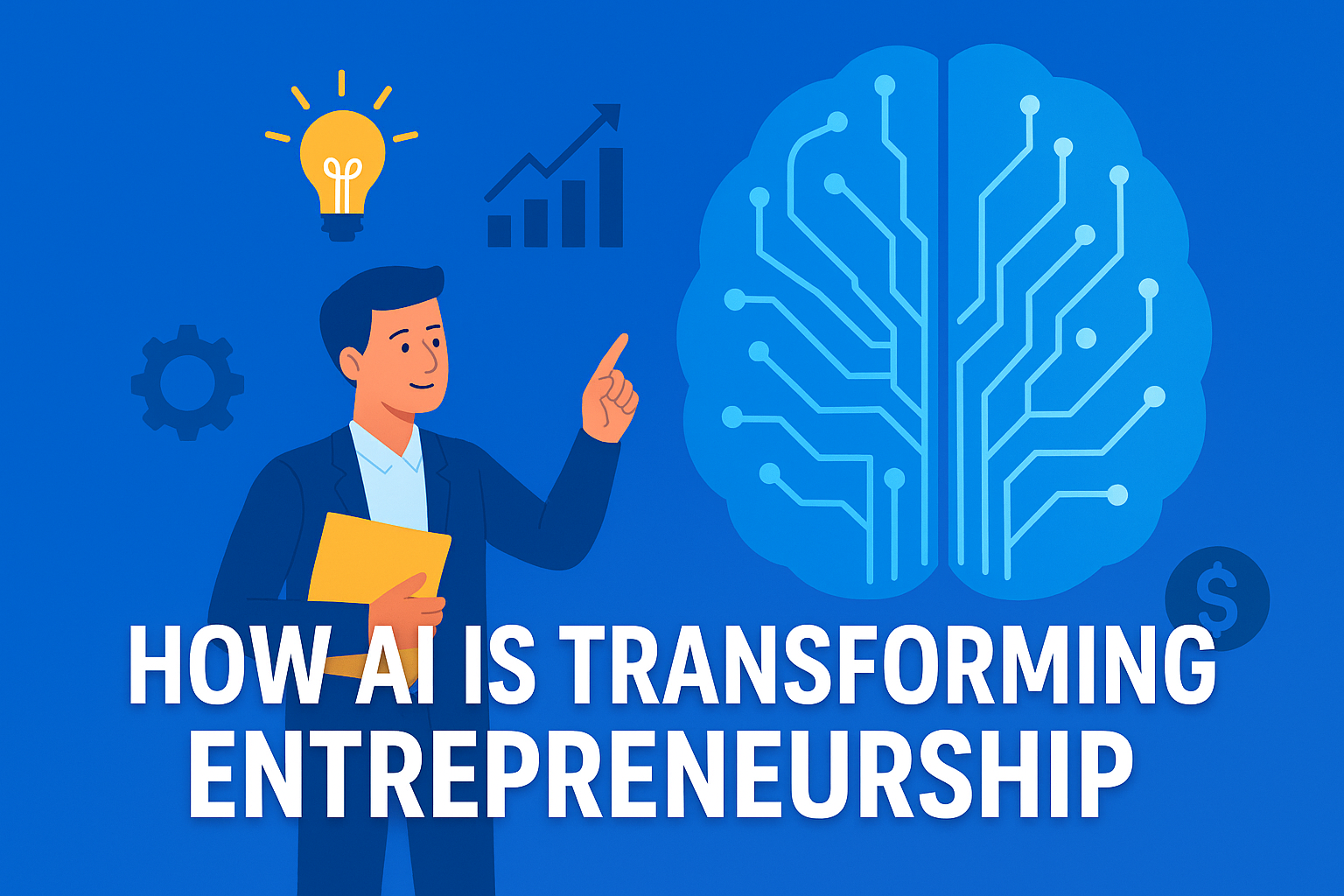🚀 How AI Is Transforming Entrepreneurship: The New Age of Innovation
Not long ago, entrepreneurship thrived on bold ideas, gut instincts, and a lot of trial and error. While these traits still matter, a new force is reshaping the entrepreneurial landscape — Artificial Intelligence (AI).
Once seen as futuristic technology, AI is now a practical tool powering real-world businesses. From automating daily tasks to uncovering hidden market opportunities, AI is becoming the secret weapon of both small startups and global companies.
Let’s explore how AI is revolutionizing entrepreneurship and why it’s an essential partner for modern innovators.
🧠 1. Smarter Decision-Making
Entrepreneurs often face high-pressure decisions without enough information. AI changes this by processing massive datasets in seconds, revealing trends and insights humans might overlook.
-
Example: Predictive analytics can forecast product demand months ahead, helping businesses prepare inventory and marketing campaigns.
-
Example: AI-powered sentiment analysis can track social media conversations to gauge public opinion on a new product.
-
Impact: More accurate decisions, reduced risks, and stronger strategies.
⚙️ 2. Automating the Mundane
Administrative and repetitive tasks eat up valuable time that could be spent on growth and innovation. AI automation tools take over these jobs, letting entrepreneurs focus on strategy and creativity.
-
Example: Chatbots answer customer queries 24/7 without needing a human representative.
-
Example: AI-based accounting tools automatically categorize expenses and prepare financial reports.
-
Impact: Higher productivity, lower costs, and reduced stress for business owners.
💡 3. Unlocking New Business Models
AI isn’t just improving existing businesses — it’s enabling entirely new ones. Startups can now be built around AI-driven products or services.
-
Example: AI content creation tools like Jasper and Copy.ai allow marketing agencies to deliver faster and at scale.
-
Example: Personalized health and fitness apps use AI to create custom workout and nutrition plans for each user.
-
Impact: Lower barriers to entry and faster time to market.
🎯 4. Hyper-Personalized Marketing
Today’s consumers expect personalized experiences. AI delivers this at scale by tracking behavior, preferences, and purchase history to craft highly targeted campaigns.
-
Example: E-commerce sites recommend products customers are most likely to buy based on browsing and purchase data.
-
Example: Streaming platforms suggest movies or shows tailored to individual tastes.
-
Impact: Higher engagement, stronger customer loyalty, and better conversion rates.
📈 5. Leveling the Playing Field for Small Businesses
In the past, advanced tech was only available to large corporations. Today, affordable cloud-based AI tools mean small businesses can compete on equal footing.
-
Example: AI-driven market research tools help startups identify profitable niches without hiring expensive consultants.
-
Example: AI email automation tools let small teams run professional campaigns like big brands.
-
Impact: Innovation and creativity can now win over budget size.
🌍 6. Driving Global Collaboration
AI tools are breaking down global barriers, allowing entrepreneurs to connect, collaborate, and sell worldwide.
-
Example: Real-time AI translation software makes meetings seamless between international partners.
-
Example: Virtual meeting assistants summarize discussions and action items automatically.
-
Impact: Greater global reach, diverse talent access, and faster cross-border deals.
🔮 7. A Glimpse into the Future
The AI revolution is just beginning. As AI becomes more advanced, entrepreneurs can expect:
-
Fully autonomous customer service teams.
-
AI-generated prototypes and product designs.
-
Predictive supply chain systems that adapt to market changes in real time.
⚠️ 8. The Challenges Ahead
AI’s rise also brings challenges. Issues like data privacy, algorithm bias, and over-reliance on automation need to be addressed.
-
Tip: Entrepreneurs should prioritize transparency, ethical AI practices, and human oversight to maintain trust.
📝 Final Thoughts
Artificial Intelligence is no longer a futuristic concept—it’s a present-day powerhouse that’s changing the way entrepreneurs think, plan, and execute. From automating repetitive tasks to unlocking entirely new business models, AI is offering tools and insights that were once out of reach for most entrepreneurs.
The real advantage lies not in replacing human creativity, but in amplifying it. Entrepreneurs who embrace AI today position themselves to move faster, adapt quicker, and compete smarter in an increasingly digital economy.
In short, the future of entrepreneurship isn’t just human—it’s human + AI, working together to innovate beyond imagination.
